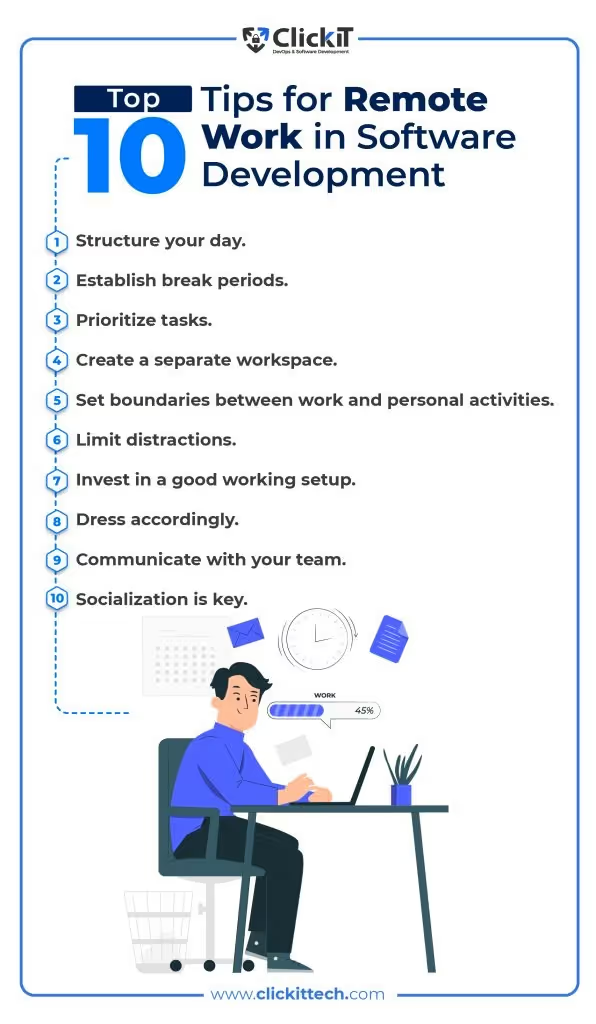Working as a remote developer has many perks and benefits. From being able to work from the peace of your own home, to being able to work at flexible timings, WFH developers have many benefits. However, many developers find it challenging to land the right clients or are unable to land a job with a good outsourcing agency. To be able to make your mark in the software development industry, developers must establish a good reputation for themselves as a ‘brand’. This is called developer branding. Building their unique identity will help attract potential clients, and networking with professionals who are in the same or similar field can also lead to numerous fantastic opportunities. In this article, we help remote developers improve their skills and will help you build your personal brand as a developer. This will help developers boost your career in many ways!

Develop a signature project that showcases your skills and creativity. This could be an innovative open-source tool, a unique web application, or a comprehensive library. Ensure this project is well-documented, user-friendly, and solves a real problem. A signature project not only demonstrates your technical prowess but also serves as a tangible example of your work ethic and ingenuity. Promote this project through your personal website, GitHub, and social media. Engage with the community by inviting feedback and contributions, turning your project into a collaborative endeavor that enhances your visibility and credibility.
Position yourself as a thought leader by hosting virtual workshops and webinars on topics you are passionate about. Choose subjects that align with your expertise and address current industry challenges. Promote these events through your professional networks and online communities. Record and share these sessions on platforms like YouTube and LinkedIn to reach a broader audience. By teaching others, you solidify your own knowledge, gain recognition, and build a reputation as an expert willing to give back to the community. This proactive approach sets you apart as a remote developer who is both knowledgeable and generous with your insights.
Create a personal brand manifesto that articulates your professional philosophy, core values, and vision for the future. This document should be more than a resume; it should tell the story of who you are as a developer and what drives you. Share this manifesto on your personal website and LinkedIn profile. A well-crafted manifesto resonates with potential clients and employers, offering them a deeper understanding of your motivations and long-term goals. It serves as a unique branding tool that highlights your commitment to excellence and continuous improvement.
Launch a podcast or video series focused on your area of expertise. This could include interviews with industry leaders, discussions on the latest tech trends, or deep dives into specific programming challenges. Choose a format that suits your strengths, whether it's solo episodes, guest interviews, or collaborative panels. Regularly releasing high-quality content establishes you as a thought leader and keeps your audience engaged. Promote your series through social media, tech forums, and your personal website. This consistent content creation not only builds your brand but also expands your network and opens up new opportunities for collaboration.
Participate in virtual hackathons and coding competitions to showcase your skills in a competitive environment. These events provide an excellent platform to test your abilities, learn new technologies, and collaborate with other talented developers. Winning or even participating in such competitions can significantly boost your credibility and visibility. Document your experiences and outcomes on your personal website and social media profiles. Highlighting your involvement in these events demonstrates your commitment to continuous learning and your ability to perform under pressure.
Seek out strategic partnerships and collaborations with other developers, designers, or tech companies. Working on joint projects can help you reach new audiences and learn from others' expertise. Approach potential partners with clear proposals that outline mutual benefits and shared goals. Document and showcase these collaborations on your portfolio and social media, emphasizing the skills and knowledge you gained. Strategic partnerships not only enhance your personal brand but also open doors to future opportunities and expand your professional network.
Create a personalized and seamless onboarding experience for new clients. Develop a detailed onboarding package that includes an introduction to your workflow, communication channels, and project management tools. Customize this package to address each client's specific needs and expectations. A smooth onboarding process sets a positive tone for your professional relationship and demonstrates your organizational skills and attention to detail. This personalized touch can lead to long-term client relationships and positive referrals, bolstering your reputation as a reliable and client-focused remote developer.
Transform your portfolio into an interactive experience that goes beyond static project listings. Incorporate elements like live demos, interactive code snippets, and VR/AR showcases if relevant. Use storytelling to guide visitors through your projects, explaining the challenges you faced and the solutions you implemented. This immersive approach not only makes your portfolio more engaging but also provides a comprehensive view of your problem-solving abilities and creative thinking. An interactive portfolio can leave a lasting impression on potential clients and employers, setting you apart from other remote developers.
Remote work offers many benefits, including flexibility and convenience. With the fast-paced nature of modern life, many developers prefer the comfort of working from home. This allows them to work in a quiet environment and choose hours that suit their needs. If you are a remote developer seeking a dependable nearshore outsourcing agency that partners with US-based clients, Blue Coding is the perfect choice for you. We value employee well-being as much as client satisfaction, and our diverse team creates a vibrant and inclusive work culture. To join our team, explore our current job openings and apply for the position that best matches your skills!
Subscribe to our blog and get the latest articles, insights, and industry updates delivered straight to your inbox